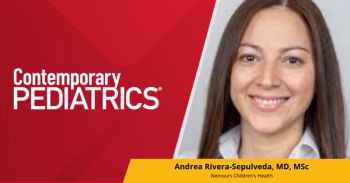
Weekly review: ADHD treatment FDA approval, peanut consumption and adolescent tolerance, and more
Get caught up with our journal! Review some of the top stories from the Contemporary Pediatrics website over the last week, and catch up on anything you may have missed.
Thank you for visiting the Contemporary Pediatrics® website. Take a look at some of our top stories from last week (Monday, May 27, to Friday, May 31, 2024), and click on each link to read and watch anything you may have missed.
1.) FDA approves clonidine hydrochloride to treat ADHD in patients 6 years and up
The FDA has approved clonidine hydrochloride (ONYDA XR; Tris Pharma) for treating ADHD as a monotherapy or adjunctive therapy to CNS stimulant medications for patients aged 6 years and older. This once-a-day extended-release oral suspension is the first non-stimulant ADHD medication in the U.S. with nighttime dosing and will be available in late 2024.
Clonidine is contraindicated in patients with hypersensitivity to the drug.
2.) Peanut consumption through 5 years of age provides lasting tolerance into adolescence
A follow-up trial of early peanut introduction for allergy prevention showed that peanut consumption from infancy through age 5 results in lasting peanut tolerance into adolescence, regardless of later peanut consumption. The original LEAP study included 640 infants with severe eczema, egg allergy, or both, assigned to peanut consumption or avoidance until age 5. At 5 years, peanut allergy prevalence was significantly lower in the consumption group (1.9% vs. 13.7% for those initially negative on skin-prick tests). The follow-up trial, involving 508 participants, confirmed that at age 12, peanut allergy remained significantly less common in those originally in the consumption group (4.4% vs. 45.4% in the avoidance group).
3.) Early adolescents with complex congenital heart disease have higher stress markers
A study in JAMA Network Open found that early adolescents with complex congenital heart disease (cCHD) who had infant open-heart surgery showed higher stress markers and lower executive functioning (EF) compared to healthy peers. This single-center, population-based, case-control study included 100 adolescents with cCHD who underwent surgery before age 1 and 104 healthy controls. Stress markers were measured using hair cortisol and cortisone levels, and EF was assessed via neuropsychological tests.
4.) Belimumab autoinjector approved for systemic lupus erythematosus patients 5 years and older
The FDA has approved GSK's 200 mg belimumab (Benlysta) for subcutaneous administration in patients aged 5 years and older with active systemic lupus erythematosus (SLE) who are receiving standard therapy. This B-lymphocyte stimulator (BLyS)-specific inhibiting monoclonal antibody can now be administered at home, providing flexibility for pediatric patients and their caregivers. Pediatric lupus is often more severe than adult lupus, with higher rates of organ damage. Previously, belimumab for children was available only through intravenous (IV) administration every 4 weeks in a clinical setting.
5.) Associations between childhood asthma and dietary intake, minerals, vitamins, antioxidants
A recent study in Frontiers identified a causal relationship between childhood asthma (CA) and dietary intake of sugars and fats, as well as serum levels of magnesium and vitamin D. The global incidence of CA is rising, with over 25 million affected in the U.S., including 9 million children. Major risk factors include air pollution and cigarette exposure, but diet may also play a role.
Trending articles:
Below, find a pair of video interviews with Dr. Wendy Ripple, MD, Department of Pediatrics, Allegheny Health Network, Erie, Pennsylvania, highlighting sun safety, sun burn, and sunscreen recommendations. These videos are among the most-viewed on the Contemporary Pediatrics website over the last week.
Sun burn consequences and sunscreen recommendations for children
Practical reminders for sunscreen recommendations, sun safety as summer approaches
Newsletter
Access practical, evidence-based guidance to support better care for our youngest patients. Join our email list for the latest clinical updates.








